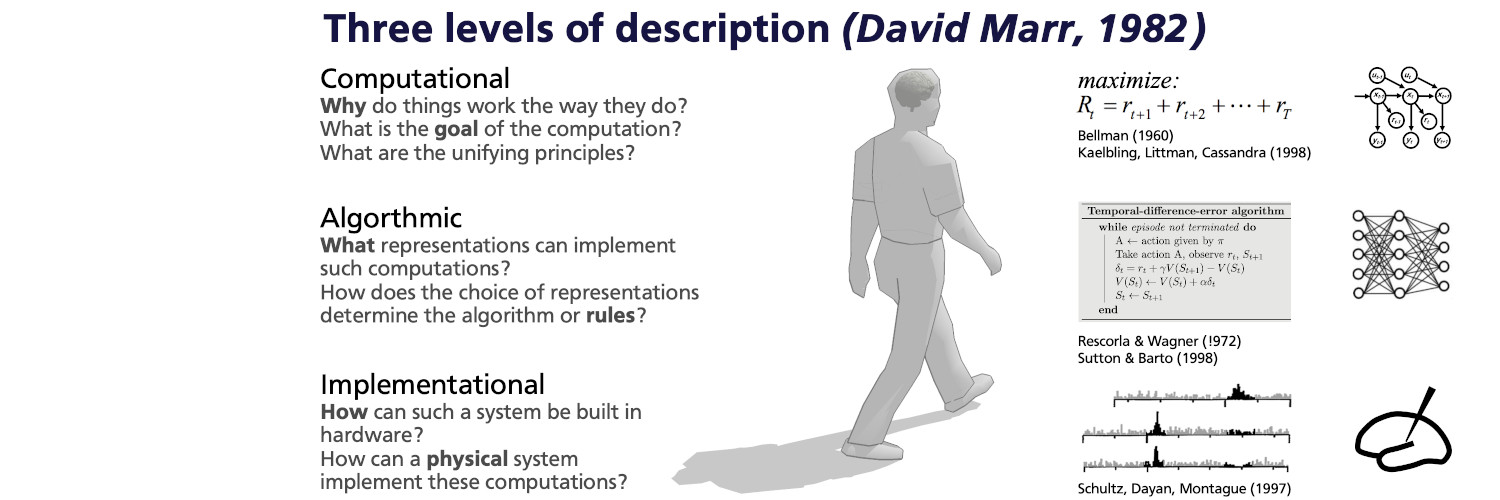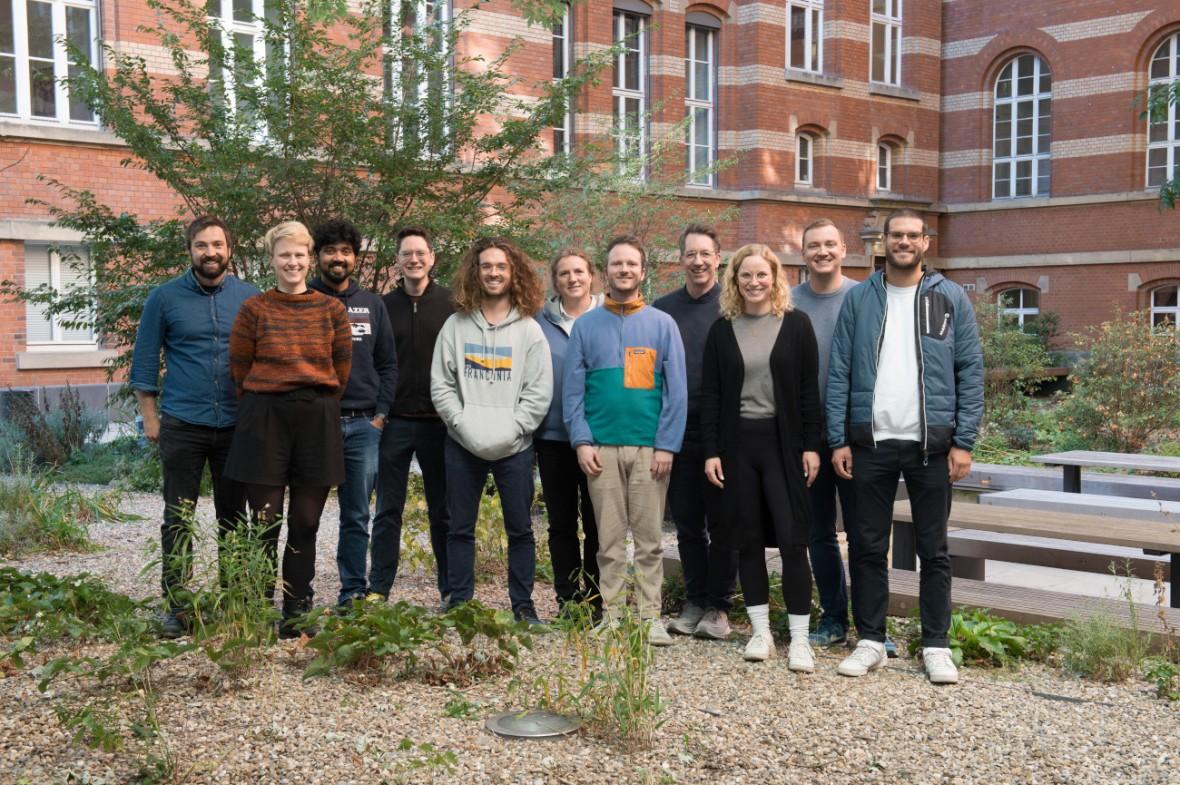
ConstantinRothkopf
@c_rothkopf
Computational cognitive scientist. Perception and action are inseparably intertwined. Prof @TUDarmstadt Director @CentreForCogSci Member @Hessian_AI @ELLISforEu
We have an open PhD position in an exciting DFG-AEI project to further develop continuous psychophysics in collaboration with Joan-Lopez Moliner. More info: linkedin.com/posts/constant…

Excited to share that our paper got accepted at #ICML2025!! 🎉 We challenge Vision-Language Models like OpenAI’s o1 with Bongard problems, classic visual reasoning challenges and uncover surprising shortcomings. Check out the paper: arxiv.org/abs/2410.19546 & read more below 👇
📢 Update: We've deepened our exploration of VLMs on Bongard Problems with more rigorous evaluations! The best-performing model (o1) we tested solved 43 out of 100 problems - progress, but still plenty of room for improvement!
Very excited to be part of the @SimonsFdn collaboration on ecological neuroscience! More at bsky.app/profile/c-roth…
We are so excited to announce our new Simons Collaboration on Ecological Neuroscience (SCENE)! This 10-year program will unite experts in experimental and computational #neuroscience approaches to investigate how the brain represents sensorimotor interactions.…
Congratulations to Matthias Schultheis for defending his PhD thesis 'Inverse reinforcement learning for human decision-making under uncertainty' with distinction, understanding bounded actors with inverse models: more at bsky.app/profile/c-roth…
More at bsky.app/profile/c-roth…
I am pleased to announce the next talk in the Bonn Melbourne Seminar in Decision Making and Computational Psychiatry: "Eye Movements As Sequential Decision-making Under Uncertainty" by @c_rothkopf. DM to join! #DecisionMaking #EyeMovements #TheEyesHaveIt psychologie.uni-bonn.de/de/institut/ab…
Congratulations to Dominik Straub for defending his PhD thesis 'Inverse normative modeling of continuous perception and action' with distinction, understanding bounded actors with inverse models: more at bsky.app/profile/c-roth…
Our latest work on understanding the behavior of bounded agents in more naturalistic tasks with inverse modeling accepted at @iclr_conf: Inverse decision-making using neural amortized Bayesian actors; more at bsky.app/profile/c-roth…
I didn't realize that @GaryMarcus coined the term "deep learning is hitting a wall" (in his March 2022 Nautilus essay). It became such a part of the lexicon I thought it was older. I should have cited him directly in the post. nautil.us/deep-learning-…
Ilya Sutskever, perhaps the most influential proponent of the AI "scaling hypothesis," just told Reuters that scaling has plateaued. This is a big deal! This comes on the heels of a big report that OpenAI's in-development Orion model had disappointing results. 🧵
Aktuelle #KI-Modelle bestehen nicht KI-Benchmarks aus den 1960iger Jahren 😤 Tolle Zusammenarbeit mit @toniwuest @philosotim @lukas_helff @devendratweetin @c_rothkopf heise.de/news/Vision-La…
Benchmark problems from the 1960ies ... work with @toniwuest @philosotim @lukas_helff @devendratweetin @kerstingAIML
Our recent workshop paper puts Vision-Language Models like #GPT4o to the test with Bongard problems🧩 We show that VLMs struggle to identify concepts that are quite intuitive to humans. Still a long way to go for human-like visual reasoning! 🤖🧠 arXiv: arxiv.org/abs/2410.19546
VLMs fail on #Bongard problems, a cognitive puzzle requiring abstract reasoning, limited data handling & contextual rules! #NeurIPS 2024 "System-2 Reasoning at Scale" Workshop PDF 👉 openreview.net/pdf?id=4Yv9tFH… A comparison to humans (soon on arXiv) shows a big gap
BP143
Well worth the read: "One of the two AI Nobels is not like the other. Hinton’s seems puzzling. Demis Hassabis’s is a slam dunk." ~ @garymarcus garymarcus.substack.com/p/two-nobel-pr…
The #NobelPrizeinPhysics2024 for Hopfield & Hinton rewards plagiarism and incorrect attribution in computer science. It's mostly about Amari's "Hopfield network" and the "Boltzmann Machine." 1. The Lenz-Ising recurrent architecture with neuron-like elements was published in…
Despite the controversy about today's #NobelPrize, this is a prize for interdisciplinarity: John Hopfield works in systems biology and neuroscience and Geoff Hinton is as much a computer scientist as he is a cognitive scientist and psychologist- and now even a physicist.
BREAKING NEWS The Royal Swedish Academy of Sciences has decided to award the 2024 #NobelPrize in Physics to John J. Hopfield and Geoffrey E. Hinton “for foundational discoveries and inventions that enable machine learning with artificial neural networks.”
i sometimes struggle with how to label my research area, because i studied computer science, but work on models of the brain now. today, i have the answer: i am a physicist
In case you're still confused, today's Nobel in physics is actually for mathematics and was awarded to a molecular biologist and cognitive psychologist. Hope that's all clear now.
BREAKING NEWS The Royal Swedish Academy of Sciences has decided to award the 2024 #NobelPrize in Physics to John J. Hopfield and Geoffrey E. Hinton “for foundational discoveries and inventions that enable machine learning with artificial neural networks.”
I feel like the critique that the physics Nobel is going to computer science misunderstands the culture of physics. They aren’t ceding the prize to cs, they’re claiming it as a branch of physics
People sometimes ask why theoretical physicists are interested in AI. Not only that AI is used in physics, but physics laid the foundation for AI. That's why we created physicsmeetsml.org & ai.physics.wisc.edu to stimulate symbiotic interactions. x.com/NobelPrize/sta…
BREAKING NEWS The Royal Swedish Academy of Sciences has decided to award the 2024 #NobelPrize in Physics to John J. Hopfield and Geoffrey E. Hinton “for foundational discoveries and inventions that enable machine learning with artificial neural networks.”
Geoffrey Hinton, the Godfather of Deep Learning, wins Nobel Prize in Physics! Is Physics out of ideas? The Nobel Committee just gave a Physics award to a COMPUTER SCIENTIST! What does this say about the state of modern Physics? Though the first half of the XXth century was…